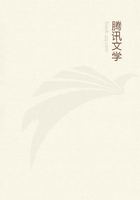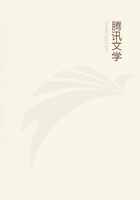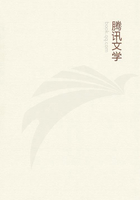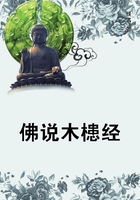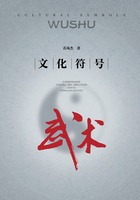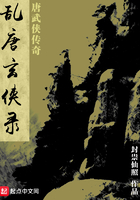Straw, rags, and the like were to be burned; and the bedsteads which had been used, set out for four days in the rain or the sunshine, so that by means of the one or the other, the morbific vapour might be destroyed.No one was to venture to make use of clothes or beds out of infected dwellings unless they had been previously washed and dried either at the fire or in the sun.
People were, likewise, to avoid, as long as possible, occupying houses which had been frequented by plague-patients.
We cannot precisely perceive in these an advance towards general regulations; and perhaps people were convinced of the insurmountable impediments which opposed the separation of open inland countries, where bodies of people connected together could not be brought, even by the most obdurate severity, to renounce the habit of profitable intercourse.
Doubtless it is nature which has done the most to banish the Oriental plague from western Europe, where the increasing cultivation of the earth, and the advancing order in civilised society, have prevented it from remaining domesticated, which it most probably was in the more ancient times.
In the fifteenth century, during which it broke out seventeen times in different places in Europe, it was of the more consequence to oppose a barrier to its entrance from Asia, Africa, and Greece (which had become Turkish); for it would have been difficult for it to maintain itself indigenously any longer.
Among the southern commercial states, however, which were called on to make the greatest exertions to this end, it was principally Venice, formerly so severely attacked by the Black Plague, that put the necessary restraint upon perilous profits of the merchant.
Until towards the end of the fifteenth century, the very considerable intercourse with the East was free and unimpeded.
Ships of commercial cities had often brought over the plague:
nay, the former irruption of the "Great Mortality" itself had been occasioned by navigators.For, as in the latter end of autumn, 1347, four ships full of plague-patients returned from the Levant to Genoa, the disease spread itself there with astonishing rapidity.On this account, in the following year, the Genoese forbade the entrance of suspected ships into their port.These sailed to Pisa and other cities on the coast, where already nature had made such mighty preparations for the reception of the Black Plague, and what we have already described took place in consequence.
In the year 1485, when, among the cities of northern Italy, Milan especially felt the scourge of the plague, a special Council of Health, consisting of three nobles, was established at Venice, who probably tried everything in their power to prevent the entrance of this disease, and gradually called into activity all those regulations which have served in later times as a pattern for the other southern states of Europe.Their endeavours were, however, not crowned with complete success; on which account their powers were increased, in the year 1504, by granting them the right of life and death over those who violated the regulations.Bills of health were probably first introduced in the year 1527, during a fatal plague which visited Italy for five years (1525-30), and called forth redoubled caution.
The first lazarettos were established upon islands at some distance from the city, seemingly as early as the year 1485.Here all strangers coming from places where the existence of plague was suspected were detained.If it appeared in the city itself, the sick were despatched with their families to what was called the Old Lazaretto, were there furnished with provisions and medicines, and when they were cured, were detained, together with all those who had had intercourse with them, still forty days longer in the New Lazaretto, situated on another island.All these regulations were every year improved, and their needful rigour was increased, so that from the year 1585 onwards, no appeal was allowed from the sentence of the Council of Health; and the other commercial nations gradually came to the support of the Venetians, by adopting corresponding regulations.Bills of health, however, were not general until the year 1665.
The appointment of a forty days' detention, whence quarantines derive their name, was not dictated by caprice, but probably had a medical origin, which is derivable in part from the doctrine of critical days; for the fortieth day, according to the most ancient notions, has been always regarded as the last of ardent diseases, and the limit of separation between these and those which are chronic.It was the custom to subject lying-in women for forty days to a more exact superintendence.There was a good deal also said in medical works of forty-day epochs in the formation of the foetus, not to mention that the alchemists expected more durable revolutions in forty days, which period they called the philosophical month.
This period being generally held to prevail in natural processes, it appeared reasonable to assume, and legally to establish it, as that required for the development of latent principles of contagion, since public regulations cannot dispense with decisions of this kind, even though they should not be wholly justified by the nature of the case.Great stress has likewise been laid on theological and legal grounds, which were certainly of greater weight in the fifteenth century than in the modern times.
On this matter, however, we cannot decide, since our only object here is to point out the origin of a political means of protection against a disease which has been the greatest impediment to civilisation within the memory of man; a means that, like Jenner's vaccine, after the small-pox had ravaged Europe for twelve hundred years, has diminished the check which mortality puts on the progress of civilisation, and thus given to the life and manners of the nations of this part of the world a new direction, the result of which we cannot foretell.

